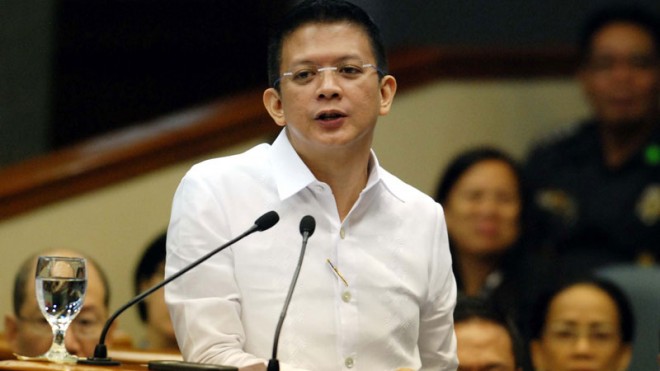Amended anti-money laundering law saves PH from FATF blacklist—Chiz

Senator Francis Escudero. INQUIRER FILE PHOTO
The Philippines may be saved from being blacklisted by the Financial Action Task Force (FATF) after President Rodrigo Duterte signed a law that puts casinos under the scope of the Anti-Money Laundering Council (AMLC), Senator Chiz Escudero said on Wednesday.
READ: Duterte puts casinos under money laundering monitoring
“I would like to thank the President for signing this into law right in time for the APG (Asia/Pacific Group on Money Laundering) meeting. Now that we have already complied with the guidelines, we are hopeful that the country will no longer be put in the blacklist,” Escudero said in a statement.
“AMLC was able to update the APG during their annual meeting in Sri Lanka that we have already passed the law. But according to them, the APG will still be monitoring the country until the law is already in force,” he added.
Escudero, chairman of the Senate Committee on Banks, Financial Institutions and Currencies, said the blacklist could put the Philippines under stringent financial monitoring and affect the remittances from overseas Filipino workers.
The Philippines narrowly escaped the FATF blacklist last year after hackers stole $81 million from the Bangladesh Bank in the Federal Reserve Bank of New York and diverted it to four fake bank accounts in the Philippines. This prompted a series of Senate investigations and the move to amend Republic Act No. 9160 or the Anti-Money Laundering Act (AMLA).
On July 14, Duterte signed R.A. 10927, amending R.A. 9160, to curb the channeling of dirty money to casinos.
Under the new law, “covered persons” will include casinos, as well as internet and ship-based casinos, and their gaming operations’ cash transactions. “Covered transaction” will include single casino cash transactions amounting to more than P5 million or its equivalent in other currencies.
It will also authorize the Court of Appeals (CA) to issue a 20-day freeze order on monetary instruments and property which is in any way related to unlawful activity.
During the 20-day period, the CA will conduct a summary hearing to determine whether to lift or modify the freeze order, or to extend its effectivity. The total period of the freeze order, however, will not exceed six months. JPV